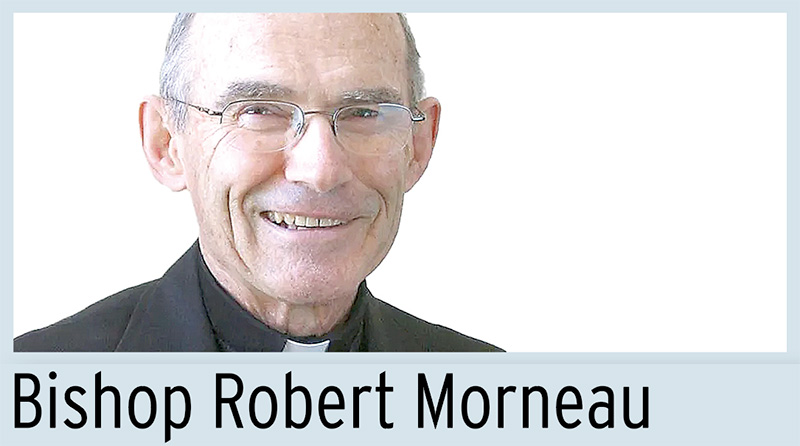 My grandfather was a wise man. One piece of wisdom that remains with me was his statement that the three greatest blessings of his life were the gift of faith, the gift of friends and the gift of serious conversation.
My grandfather was a wise man. One piece of wisdom that remains with me was his statement that the three greatest blessings of his life were the gift of faith, the gift of friends and the gift of serious conversation.
Serious conversation! That puzzled me until the experiences of life taught me that dialogue is indeed a marvelous grace. Communication with friends leads to unity and joy; communication with God, which we call prayer, leads to union and peace.
Who prays? Dads and moms as they strive to raise their children in a secular culture, teachers who know that without God’s help they will have little influence on their students, doctors who beg God to guide them in their practice of healing the ill, farmers who understand that all life, all holiness comes from God. All people who are aware of their total dependency upon God and believe in God’s providential love lift their minds and hearts to God on a daily basis. The Gallup Organization, in fact, reports that nine out of 10 Americans say they pray.
But what is prayer? Prayer is about seeing God. So much of our lives are spent giving attention to the innumerable activities of our daily lives, some of which are necessary, some not. We are busy making a living, tending our gardens, planning for this or that celebration, doing the laundry, reading the newspaper or watching TV. Our vision may well fail to see God behind the gifts and graces of ordinary life.
Our hearts may become cluttered and crowded by multiple relationships, by an abundance of possessions, by calendars that control our time. Suddenly (or not so suddenly) God may be pushed farther and farther from our consciousness. Secularism, an exclusive this-worldliness, can become a way of life. Prayer fades away.
Prayer as ‘reversed thunder’
One of my favorite images of prayer comes from the poet George Herbert (1593-1633), who understood prayer as “reversed thunder.” God communicates with us in a variety of ways: thunder (and lightning), Scripture, the sacraments, nature, personal relationships, the larger community, world events, tradition, the magisterium of the Church, our intuitions, our dreams.
And we respond to God’s initiative in multiple ways: praise for divine glory, thanksgiving for small and great gifts, intercessions for needs, pleas for forgiveness for our sins and the sins of the world. Deep calling to deep, thunder to thunder, prayer is the mysterious dialogue between Creator and creature.
Praying is about seeing, hearing, serving; it’s about abiding in God’s loving and merciful presence. But certain conditions are essential to prayerfulness, to a way of life that is lived with an awareness of the mystery of God. In many ways the Catechism of the Catholic Church instructs us in the art of “reversed thunder” by emphasizing the need for purity, humility, love and faith.
These four virtues are dispositions that enable us to live in God’s presence and empower us to do God’s will.
The promise of a new heart
We do well to ponder a promise God makes to us through the prophet Ezekiel. It is a promise of a new heart, a new spirit. Our ability to pray is rooted in a gift that comes from God: “I will sprinkle clean water over you to make you clean; from all your impurities and from all your idols I will cleanse you. I will give you a new heart, and a new spirit I will put within you. I will remove the heart of stone from your flesh and give you a heart of flesh” (Ezekiel 36:25-26).
We rely not upon our own ability to pray as we ought. Rather, we have confidence that God will be true to the prophetic word and transform our lives by means of a new heart.
Bishop Robert Morneau is the retired auxiliary bishop of the Diocese of Green Bay, Wisconsin. This reflection was published online at www.franciscanmedia.org.


